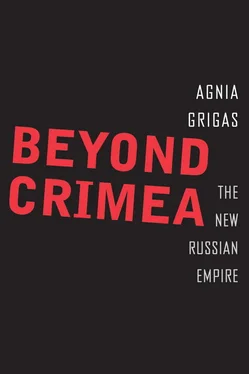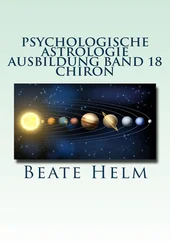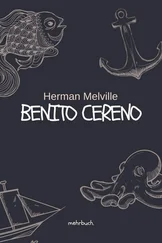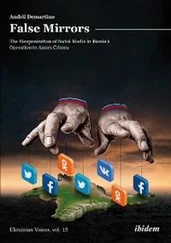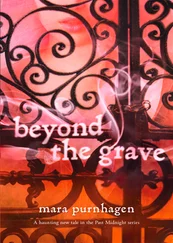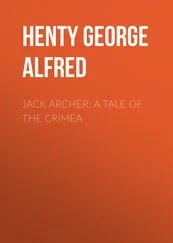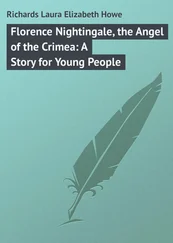Addressing the stage of Russian information warfare is one of the most important policy responses, as propaganda starts as a form of soft power and progresses to become a tool of war. Some positive steps in that direction have already been taken in response to Russia’s escalating information campaign following Crimea’s annexation. In January 2015, Britain, Denmark, Estonia, and Lithuania called on the EU to create information alternatives to the Russian propaganda. Also, in 2015 Estonia and Latvia have announced plans to develop Russian-language TV channels, and Ukraine launched an English-language channel, Ukraine Today, in 2014. Other initiatives are needed not only on the European continent but also in the Caucasus and Central Asia. The United States-funded Cold War–era creation Radio Free Europe/Radio Liberty would do well to further enhance its role in providing an alternative source of news and information in the Russian language and the languages of the former Soviet states. In October 2014, FRE/RL and Voice of America launched a thirty-minute Russian-language televised news program. Still it is no match for even the single Russian state-funded English-language round-the-clock news channel Russia Today, with a reported annual budget in 2015 of $236 million and an audience exceeding 700 million in more than a hundred countries. In the years to come, the information campaign to counter Russian propaganda would benefit from better funding, organization, and coordination between the target states, the EU, and the United States.
Once Russian reimperialization policies reach the final phases of protection and annexation much of the trajectory will have been completed and implemented. At such stages, policy responses need be even more case-specific, and their analysis lies largely beyond the scope of this book. Some of the post-Soviet states have already taken small steps that may better prepare them if Russian policies move toward their final and most aggressive phases. In January 2015, Lithuania issued a public information manual, How to Act in Extreme Situations or Instances of War, so as to better prepare the population for outbreaks of traditional and hybrid warfare. Additional policy responses to consider must include (among others) preparing for Russia’s hybrid warfare, riot response, and countering transnational paramilitary groups, as well as engaging separatist territories and frozen-conflict zones. Policymakers in the target states and their allies, as well as the broader international community, should be prepared to offer responses and address Russia’s reimperialization activities in the short, medium, and long terms. Returning to business as usual with Moscow will not eliminate the local, regional, and international fallout from Russia’s expansionist policies, which take the form of frozen conflicts, broken states, and their stunted future development.
CHAPTER 1. THE RETURN TO EMPIRE
1. Leigh Michael, “Transatlantic Relations, Economic Crisis, and the Future of the European Union,” Bologna Center Journal of International Affairs 16, (2013): 48–53; Joerg Forbrig, quoted in Simon Shuster, “Putin’s Latest Moves Tip the Balance of Power Toward Russia,” Time , 21 December 2013, http://world.time.com/2013/12/21/putins-latest-moves-tip-the-balance-of-power-toward-russia/; Michal Baranowski, quoted in Ian Traynor, “Russia ‘Blackmailed Ukraine to Ditch EU pact,’” The Guardian , 22 November 2013, http://www.theguardian.com/world/2013/nov/22/russia-ukraine-eu-pact-lithuania.
2. “Mogherini: Russia Is No Longer the EU’s Strategic Partner,” EurActiv, 3 September 2014, http://www.euractiv.com/sections/global-europe/mogherini-russia-no-longer-eus-strategic-partner-308152; Simon Tisdall, “The New Cold War: Are We Going Back to the Bad Old Days?” The Guardian , 19 November 2014, http://www.theguardian.com/world/2014/nov/19/new-cold-war-back-to-bad-old-days-russia-west-putin-ukraine; Alasdair MacDonald and Jan Strupczewski, “EU Leaders Prepare for Long Confrontation with Russia,” Reuters, 19 December 2014, http://www.reuters.com/article/2014/12/19/us-russia-crisis-eu-idUSKBN0JX04M20141219.
3. Theodore R. Weeks, Nation and State in Late Imperial Russia: Nationalism and Russification on the Western Frontier, 1863–1914 (DeKalb: Northern Illinois University Press, 2008); Edward C. Thaden, Russification in the Baltic Provinces and Finland, 1855–1914 (Princeton, NJ: Princeton University Press, 1981); Darius Staliunas, Making Russians: Meaning and Practice of Russification in Lithuania and Belarus after 1863 (Amsterdam: Rodopi, 2007).
4. Gatis Pelnēns, ed., The “Humanitarian Dimension” of Russian Foreign Policy Toward Georgia, Moldova, Ukraine, and the Baltic States (Riga: Centre for East European Policy Studies, 2009), pp. 9–10.
5. Alexander Motyl, Imperial Ends (New York: Columbia University Press, 2001), p. 110.
6. Francis Fukuyama, “The End of History?” The National Interest , Summer 1989, http://ps321.community.uaf.edu/files/2012/10/Fukuyama-End-of-history-article.pdf.
7. Motyl, Imperial Ends, p. 4.
8. Daniel Litvin, “Oil, Gas and Imperialism,” The Guardian , 4 January 2006, http://www.theguardian.com/world/2006/jan/04/russia.ukraine2.
9. One of the most-heard voices urging to restore the “humiliated” Russian state and nation is that of Alexander Dugin—former professor at Moscow State University, known for his nationalistic views. Anton Barbashin and Hannah Thoburn, “Putin’s Brain: Alexander Dugin and the Philosophy Behind Putin’s Invasion of Crimea,” Foreign Affairs , 31 March 2014, http://www.foreignaffairs.com/articles/141080/anton-barbashin-and-hannah-thoburn/putins-brain.
10. Daniel Treisman, “Vladimir Putin’s Remarkable Comeback,” CNN, 3 February 2014, http://www.cnn.com/2014/02/03/opinion/treisman-putin-comeback-sochi/index.html.
11. Leon Aron, ed., Putin’s Russia: How It Rose, How It Is Maintained, and How It Might End (Washington, DC: American Enterprise Institute, 2015).
12. Jeffrey Mankoff, Russian Foreign Policy: The Return of Great Power Politics (Lanham, MD: Rowman & Littlefield, 2009); Stephen Sestanovich, “Russia’s Foreign Policy is a Near-Complete Failure,” Financial Times , 3 November 2013, http://www.ft.com/cms/s/0/73d58caa-4258-11e3-8350-00144feabdc0.html#axzz3KJbA20nB.
13. Dmitri Trenin, “What Russian Empire?” New York Times , 23 August 2011, http://www.nytimes.com/2011/08/24/opinion/24iht-edtrenin24.html?_r=0.
14. Johan Galtung, “Geopolitics after the Cold War: An Essay in Agenda Theory,” in The International System After the Collapse of the East-West Order , ed. Armand Clesse, Richard Cooper, and Yoshikazu Sakamoto (Dordrecht: Martinus Nijhoff, 1994), p. 202, cited in Motyl, Imperial Ends, p. 113.
15. Motyl, Imperial Ends , p. 103.
16. Edward Lucas, The New Cold War: Putin’s Russia and the Threat to the West (New York: Palgrave Macmillan), 2014.
17. Emil Pain, “Russia Between Empire and Nation,” Russian Politics and Law 47, no. 2 (2009): 60–86.
18. Agnia Grigas, “How Putin Carries Out Power Grab,” CNN, 4 March 2014, http://www.cnn.com/2014/03/02/opinion/grigas-putin-compatriot-policy-crimea/index.html.
19. “US Lawmakers Call for Arming Ukraine Government,” Business Insider, 31 August 2014, http://www.businessinsider.com/us-lawmakers-call-for-arming-ukraine-government-2014-8#ixzz3LuJc2WjD.
20. Indira Lakshmanan, “Congress Passes Tougher Russia Sanctions But Gives Obama Leeway,” Bloomberg.com , 12 December 2014, http://www.bloomberg.com/politics/articles/2014-12-12/congress-passes-tougher-russia-sanctions-but-gives-obama-leeway.
Читать дальше
